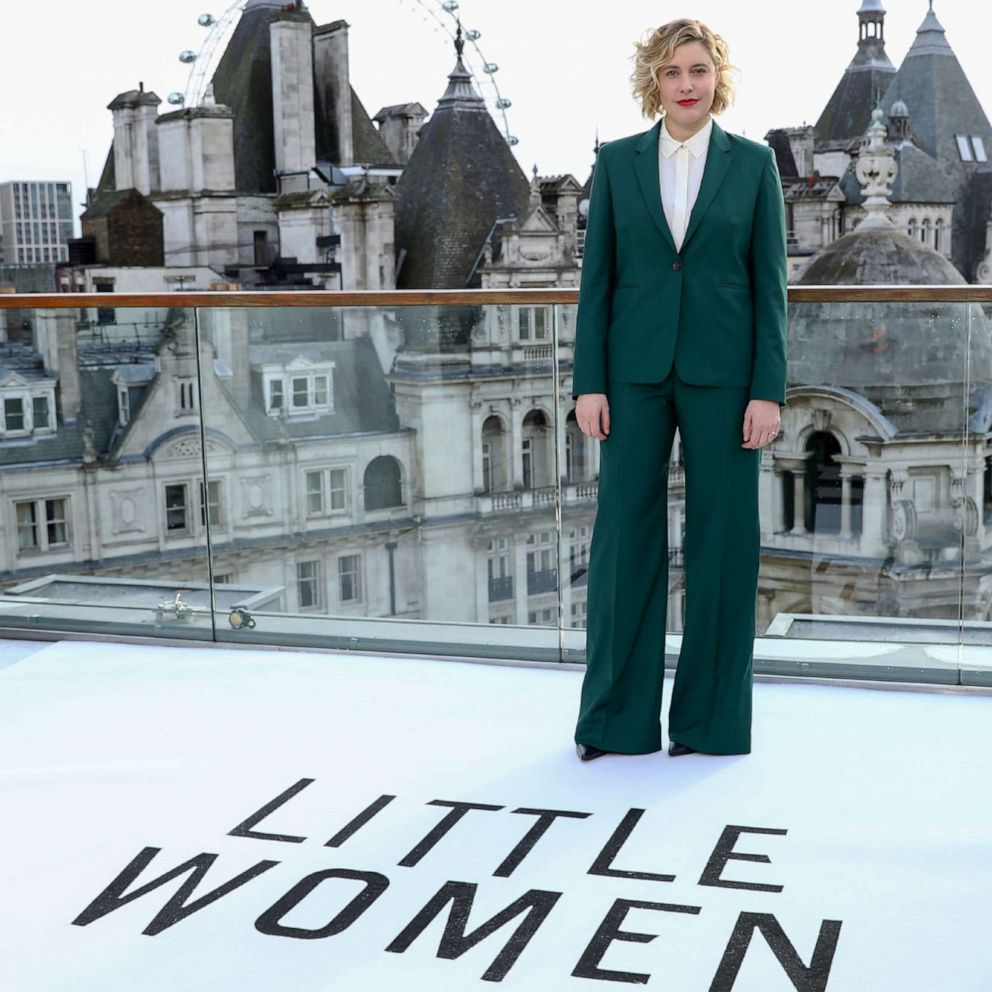Female directors were snubbed in 2020 Oscar nominations -- here's what can be done
All five nominees for best director are male.
One of the most notable takeaways from 92nd Academy Awards nominations, announced Monday morning, was the lack of female nominees for best director.
The five contenders announced in the category include Martin Scorsese for "The Irishman," Todd Phillips for "Joker," Sam Mendes for "1917," Quentin Tarantino for "Once Upon a Time in Hollywood" and Bong Joon-ho for "Parasite."
Directors like Lulu Wang ("The Farewell), Greta Gerwig ("Little Women"), Melina Matsoukas ("Queen & Slim"), Kasi Lemmons ("Harriet"), Lorene Scafaria ("Hustlers"), Marielle Heller ("A Beautiful Day in the Neighborhood") and Alma Har'el ("Honey Boy"), among many others, were ignored.
"Insecure" creator and star Issa Rae, who announced the nominees alongside John Cho, seemingly alluded to this shut-out after announcing the category's nominees when she stated, "Congratulations to those men."
For many, the snub was disappointing but not surprising, given the history of lack of inclusion in top categories at the Academy Awards. Only five women have been nominated for best director in history, and only one has taken home the award: Kathryn Bigelow, for 2009's "The Hurt Locker."
"It's disheartening that even as the number of women nominated for awards in documentary, short film, and technical categories increases, there have still only been five women considered for the Best Directing award in its 92 year history," Kirsten Schaffer, Executive Director, Women In Film LA, said in a statement.
"The Academy has made efforts to balance its voting bodies, but gender equality and diversity do not just happen," her statement continued. "Without deep systemic change in the industry and a real commitment to equity in film finance, distribution, and marketing, this bleak trend will continue."
A recent report from the University of Southern California SC Annenberg Inclusion Initiative found a long history of excluding women across many award shows.
Of nominees evaluated from 2008 to 2020, just 5.1% of best director nominees across the Golden Globes, Academy Awards, DGA Awards and Critics' Choice Awards were female, according to the study.
"For me, 2019 was the year in which women broke ground as directors but still have not been lauded for their work," Dr. Stacy L. Smith, associate professor of communication at USC and the founder and director of the USC Annenberg Inclusion Initiative, told "Good Morning America."
"In a year where so many critically and financially successful films were directed by women, the lack of nominations reveals a deeper leadership bias on the part of the voting and nominating body that must be addressed," she continued.
Rebecca Goldman, TIME'S UP Chief Operating Officer, shared in a statement, "This is why TIME'S UP exists -- to ensure women in entertainment and across industries get the opportunities and recognition they deserve. And we won't stop fighting until they do."
In order to increase female representation, Smith believes there needs to be a shift in how projects -- and who directs them -- are viewed in the realm.
"For directors, it is crucial to expand the perception of who can lead and be lauded for their work," she said. "In a study we published with Sundance Institute and Women in Film several years ago, we asked industry members about the qualities of a successful director. At a ratio of 2 to 1, they named masculine over feminine traits."
"Some examples include 'commanding the troops' or being like 'General Patton.' Until the perception of a successful director is one that moves beyond a masculine style of leadership, we will see the same patterns time and again," she continued. "When directors or stories are lauded for being 'muscular' this perpetuates a very narrow view of who can be celebrated for their achievements."
The USC Annenberg Inclusion Initiative wrote in a tweet, "Not until the leadership bias is addressed, this will keep happening. And the negative effects for women interested in directing can not be underestimated. @TheAcademy needs an overhaul."
Singer and actress Bette Midler tweeted: "Maybe we just get our own show called the Osc-hers? I guarantee it will be way better organized and way more entertaining!"
Lack of diversity among nominees was another major takeaway from the newly-announced nominations.
Cynthia Erivo is the only woman of color nominated in the best actress in a leading role category this year. Every supporting actress nominee is white.
Many felt that actors including Awkwafina ("The Farewell"), Jennifer Lopez ("Hustlers") and Lupita Nyong'o ("Us") should have received nods.
However, despite these disappointing factors, 2020 Oscars nominations are also a record year for women, as Academy of Motion Picture Arts and Sciences reported that 62 women were nominated, nearly one third of the year's nominees.
The statistic was overlooked by critics and film goers alike due to the glaring exclusion of women in the director category and the lack of diversity across categories, but women were represented as editors, producers and score composers.
Smith said she is "thrilled to see women recognized for their work this year," but reiterated that it's important to remember that women should be honored across all categories.
"It's important to ask about the categories in which women are recognized — are they breaking into the cinematography, sound, or visual effects nominations?" she said. "We see one woman nominated for original score, which is fantastic, but it's essential not to lose sight of the need for women to be seen and recognized in all categories. Additionally, how many women of color are nominated across these distinctions?"
Check out a full list of all the women who received a 2020 Oscars nomination here.







